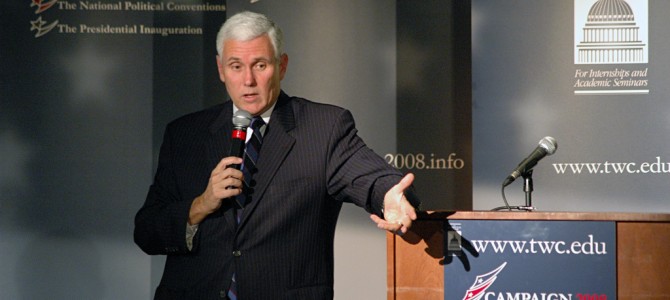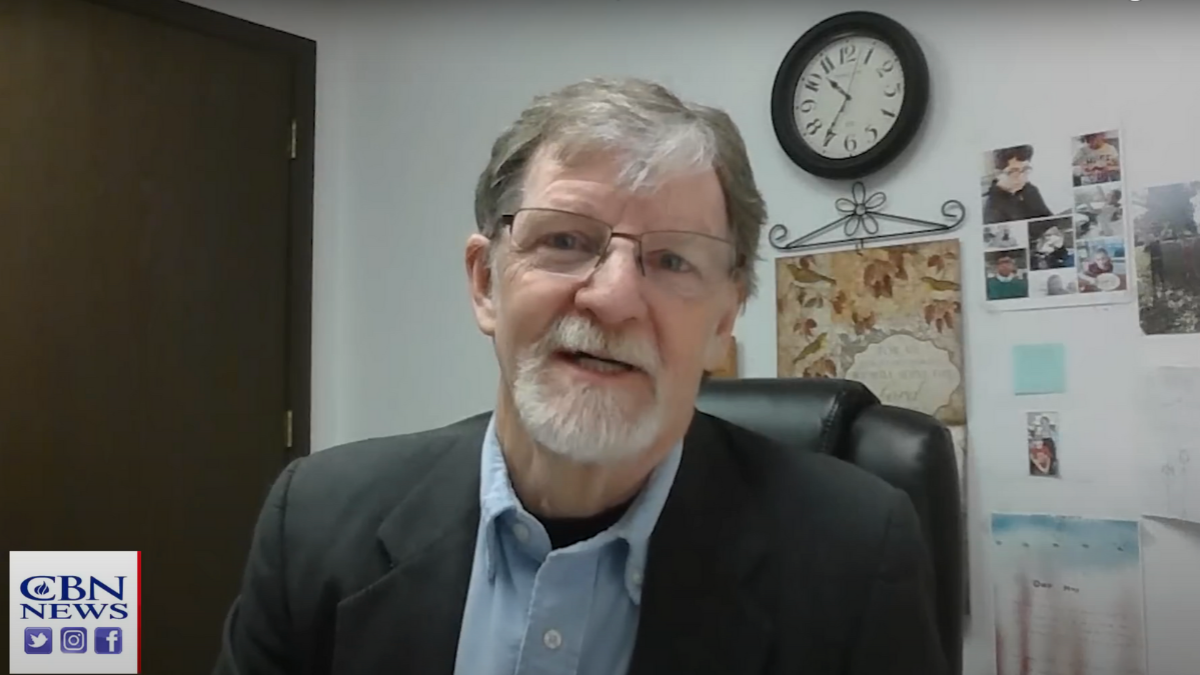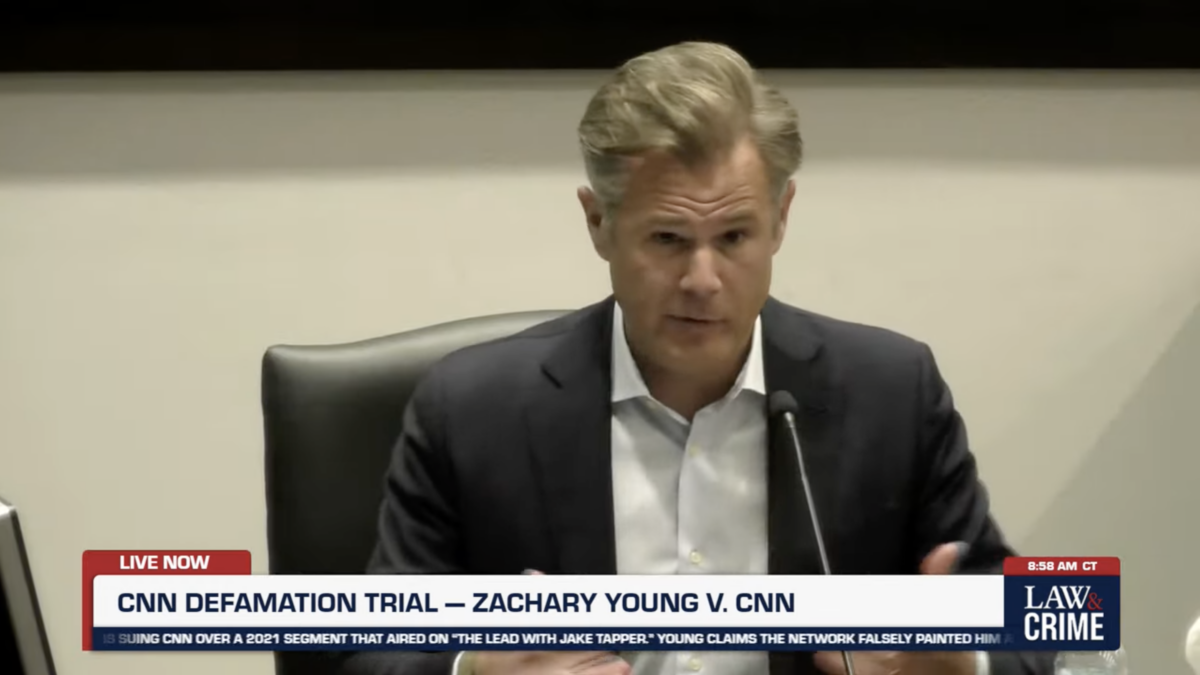
This fall an Indiana trial judge will hear complaints in a suit brought by several conservative groups—the Indiana Family Institute, Indiana Family Action, and American Family Association—challenging the state’s “fix” to its Religious Freedom Restoration Act (RFRA). The suit also challenges cities like Indianapolis for nondiscrimination ordinances that include special preferences for LGBT individuals.
Gov. Mike Pence and Indiana Attorney General Greg Zoeller are noticeably absent from the lawsuit, calling into question their commitment to the rule of law when doing so might result in outcomes they don’t like.
Most state RFRA laws are designed to protect religious liberties, but Indiana’s RFRA law was amended after a national firestorm with a so-called “fix” to neuter it by clearly stating it does not authorize discrimination nor provide a defense to someone who discriminates.
As a result, local nondiscrimination ordinances protecting LGBT groups popped up across the state. Essentially the RFRA push in Indiana backfired on its conservative advocates by getting amended to allow more liberal local ordinances.
The conservative plaintiffs in the case are represented by Jim Bopp, a well-known Republican lawyer who successfully kick-started the Citizens United case before the U.S. Supreme Court. The plaintiffs argue the state’s RFRA fix is unconstitutional because its exemptions and exceptions are too vague and do not adequately protect their religious liberties.
Bopp also argues the RFRA law allowed cities to pass ordinances that restrict his clients’ religious liberties. He cited marriage enrichment programs geared to heterosexual couples and alleged that some of his clients’ employees, volunteers, and speakers could run afoul of the ordinances for counseling only heterosexual couples.
Selectively Supporting the Rule of Law
The Indiana attorney general has a duty to defend against any lawsuit, like this one, which challenges the constitutionality of state law. Zoeller has certainly been one of the nation’s leading proponents of an attorney general’s duty to defend.
When U.S. Attorney General Eric Holder suggested some states could choose not to defend statutes banning gay marriage, Zoeller argued in the Indiana Law Journal that an attorney general owes the state and its citizens, as sovereign, a duty to defend its statutes — “even statutes that he or she personally opposes or finds distasteful” — and that “[t]o exercise discretion more broadly, and selectively to pick and choose which statutes to defend, only erodes the rule of law.”
Although Bopp’s lawsuit clearly challenges the constitutionality of an Indiana law, neither Zoeller nor the state of Indiana have been made a party to the lawsuit, and neither have elected to intervene. Why? Has Zoeller abandoned his duty to the rule of law? Has he changed his position on the issue now that it favors a different result? Where does Pence, now the Republican vice presidential candidate, stand on the matter?
In the past Zoeller and Pence have both fought to defend the state’s ban on same-sex marriages. Pence was an ally of groups lobbying for RFRA prior to its “fix,” and when he signed it into law he posed for pictures with top leaders of two of the plaintiffs in the case—Indiana Family Institute President Curt Smith and American Family Association of Indiana Executive Director Micah Clark.
Few doubt Pence and Zoeller’s sympathies fall with the plaintiffs in this case. But by failing to defend and support a valid law the legislature passed and Pence himself signed, Pence and Zoeller undermine their respect for the rule of law and the idea of popular government. If Pence didn’t like this law, he shouldn’t have signed it. Now that he has done so, he needs to uphold his legal obligation to defend it.
Follow Your Own Advice, Fellows
In Zoeller’s own words, “a selective, subjective nondefense represents abdication of official duty. It amounts to a license to substitute an individual’s political will for legal responsibility. State attorneys general are elected for an important purpose: to represent a state’s popular sovereignty according to law. Accordingly, the value of independently elected attorneys general lies not in some imagined leeway to simply override the political decisions of elected representatives (and other elected officials), but in the strength to advocate according to law rather than politics that comes from political independence.”
By arguing on behalf of the state, Zoeller and Pence will allow courts to assume their proper role of deciding the constitutionality of state statutes. It is critical for the RFRA statute to get a proper adversarial proceeding without the litigants having to address questions of standing.
As Zoeller has also argued previously in his article titled “Duty to Defend,” the state must also defend its state laws to “maintain the proper balance of powers by ensuring that the attorney general does not usurp a judicial function (by declaring a statute unconstitutional) or an executive function (by infringing on another executive officer’s ability to execute statutes). Finally, and most importantly, it will require the attorney general to fulfill his proper role as the state’s chief legal officer committed to upholding the rule of law.”
Pence has rightfully assailed President Obama for expanding executive branch powers by refusing to enforce laws he does not like, effectively repealing them. Yet here, when its suits Pence’s preferred outcome, he seemingly abandons this principle. Pence and Zoeller must put their principles into practice and uphold the rule of law by defending Indiana’s RFRA statute, even if they may personally disagree with its outcome.
Update: Between submission and publication of this article, the judge overseeing this case moved the hearing from the week of publication to November. This article has been updated to reflect that change.









